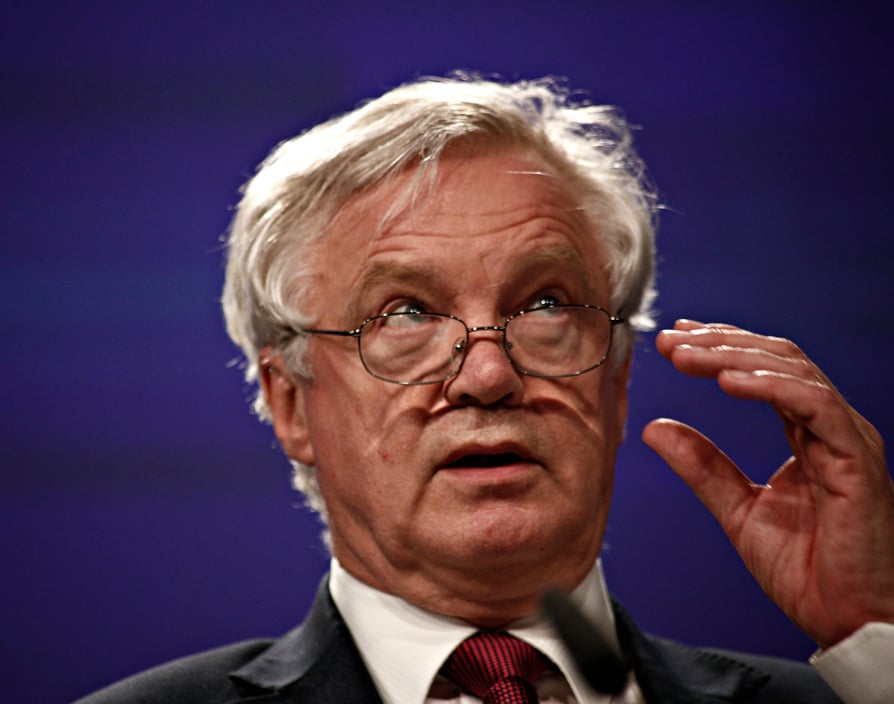Photo credit: Alexandros Michailidis / Shutterstock.com
The latest blue-on-blue Brexit bout has turned the Tory leadership on its head. Having felt unable to sign off on the softer Brexit deal Theresa May negotiated with the leadership at Chequers, David Davis and Boris Johnson have resigned from their respective posts with characteristic huff and puff. Now, SMEs are left wondering what the government reshuffle will mean for them.
The most recent drama in this long-lasting affair begun on Friday July 6 when the prime minister revealed the deal she had negotiated with the senior members of the Conservative Party. The agreement alarmed a lot of Brexiteers who felt it would pave the way for a considerably softer Brexit than what they wanted. For instance, May’s deal included a UK-EU free trade area under a “common rulebook” that will match EU standards on foods and goods.
Some Tory Brexit-supporting backbenchers voiced their discontent on Twitter over the weekend but Davis did one better on Sunday night when he resigned as secretary of state for exiting the European Union. In his resignation letter, he wrote that “the general direction of policy will leave us in at best a weak negotiating position and possibly an inescapable one.” Davis added that May’s common rulebook policy would hand “control of large swathes of our economy to the EU and is certainly not returning control of our laws in any real sense.” Davis has been replaced by Dominic Raab, who has been serving as housing minister.
Hours after Davis’ resignation, Johnson left his role as foreign secretary. Before stepping down, Johnson reportedly said that anyone supporting and trying to sell the deal to the public would be “polishing a turd.” In his resignation letter, Johnson launched a scathing attack against May, saying: “Brexit should be about opportunity and hope. It should be a chance to do things differently, to be more nimble and dynamic, and to maximise the particular advantages of the UK as an open, outward-looking global economy. That dream is dying, suffocated by needless self-doubt.” He was replaced by Jeremy Hunt, the long-serving and often controversial health secretary.
Other changes to the cabinet include Jeremy Wright stepping up as culture secretary and Geoffrey Cox becoming the new attorney general.
Following the reshuffle and the new policy, the UK SME community is understandably conflicted about what all changes will mean for them. “On one hand, the resignation of Brexit secretary David Davis is terrible news as this will inevitably cause instability in the Brexit process,” said Rick Smith, managing director of Forbes Burton, the insolvency and company rescue specialists. “However, it’s paved the way for a softer Brexit which may make it easier for small-business owners.”
Smith added: “Theresa May’s ambitions for a softer Brexit will probably calm businesses somewhat as there shouldn’t be such a huge shift in how we trade with the EU moving forward. Gradual steps rather than huge, clunking gear changes will be more welcome, particularly for those who are ill-prepared for the changes Brexit could ring in.”
Indeed, the weekend’s slew of political news already had some effect on the market by Monday morning following Davis’ resignation. “At mid-morning, the UK stock market was slightly higher and that Brexit-barometer – the pound – was trading at its best levels for almost a month,” said David Jones, chief market strategist at Capital.com, the trading platform. “At first glance, this rise might seem somewhat illogical. But traders seem to be taking the weekend discussions and Davis’ resignation as the sign that a soft Brexit could be on the cards – although the resignation does not exactly add much stability to prime minister May’s government.”
Adding to that sentiment, Ben Martin, founder of the Brexit Tracker, a digital platform that gathers data about the consequences of splitting with the EU, said: “The Chequers pact is the beginning of the end of the debate between hard or soft Brexit and the beginning of ‘middle’ Brexit. There will be further give and take between the UK and the EU and we’ll see a concessionary and practical Brexit delivered.”
But not everyone shares his slight optimism. For instance, Jake Shaw, co-founder of Twelve Ronnies, the firm connecting entrepreneurs with investors, said May’s policy “endangers international trade rather than strengthens it” because he believes “the EU will reject everything put to them by [the government] except reversal of Brexit.” He added: “Its time for [the government] to go for a hard Brexit stance, it’s the only way for the negotiation with the EU.”
Given the reshuffle is only the latest in a long string of events adding uncertainty to the market, it’s also understandable that some people fear for the future of small businesses. “When it comes to Brexit, business confidence is bound to take a knock – we all know that business doesn’t like uncertainty,” said Angus Dent, CEO at ArchOver, the business lending firm. “For small businesses, there’s no way to avoid the mess – we have to face the problem head on. Uncertainty is poison for investment and the latest Brexit news means that nervous banks may become more reluctant to lend to British businesses who want to grow.”
Dent added: “While Brexit isn’t an inevitable economic disaster, lack of investment in growing companies will worsen structural economic issues such as stagnant productivity. Bleaker still, it will keep tomorrow’s entrepreneurs lingering in the shadows, unable to find the funding they need to drive their business – and the economy – into the light.”
As the freshly reshuffled cabinet gears up for the last eight months before the UK’s departure from the EU, it’s clear that whatever the country’s leadership decides will have consequences for UK SMEs. ![]()
Share via:


















































